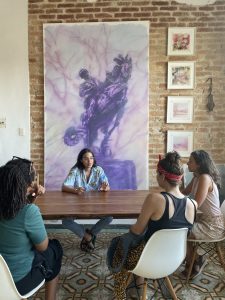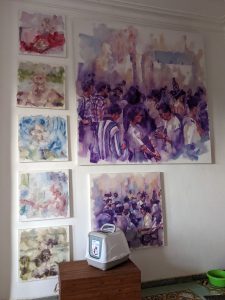In order to evaluate the true efficacy of communism, it would require a controlled environment with little outside influence. Cuba would make an excellent case study were it not for its overbearing neighbor to the north. The United States’s embargo has a ripple effect (primarily via the Helms-Burton Act) which effectively prevents Cuba from trading freely on an international stage. International trade is a necessity for all nations’ current way of life. We should all commend how well Cuba has adapted to life under draconian policies that overstep the powers that any one nation should have.
Looking for the touristy parts of my Cuban trip? Check out Cuba part one.
.
The economics of sanctions
After the first of many fine meals, we had the opportunity to sit down and learn all about Cuba’s history. The lesson started from just before the arrival of Columbus to the Americas. In addition to Spanish overlords, it surprised me to learn that the US possessed Cuba for a bit at the start of the 20th century. This tour in general focused more on economics, so we did not touch on the likely complicated racial history of Cuba.
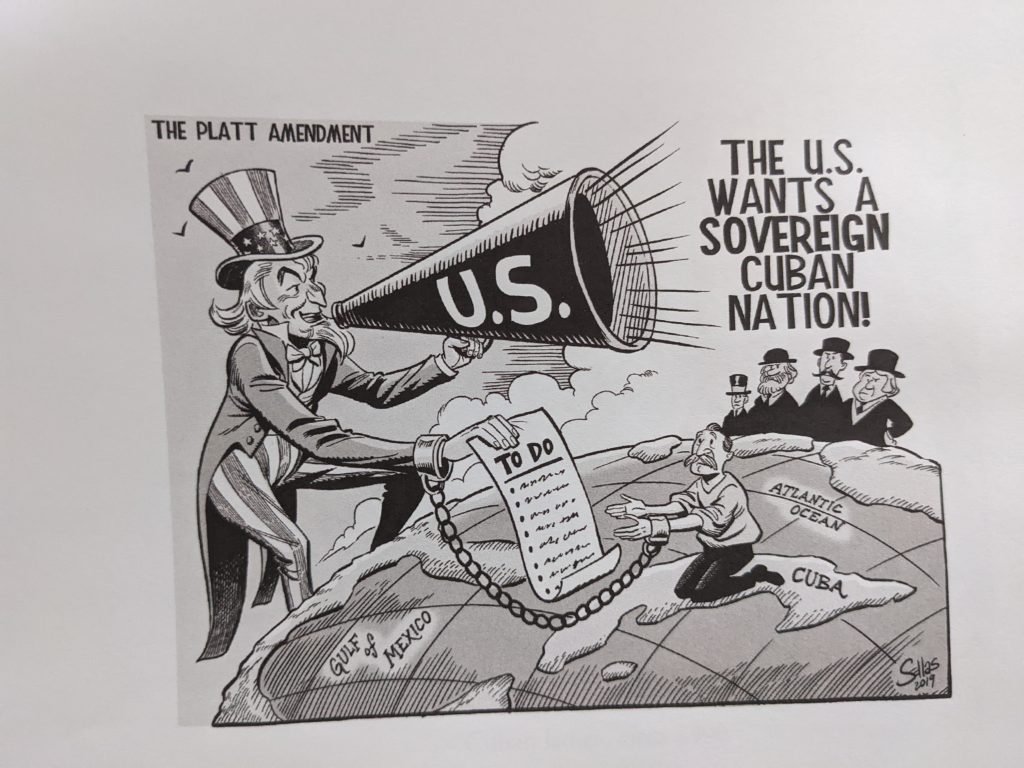
After this contextual lecture, we were treated to a talk by a Cuban power couple: a professor of economics (Dr. Juan Alejandro Triana Barros of the Center of Cuban Economic Studies) and a political journalist and analyst (MSc. Cristina Escobar.) They confirmed that a large majority of Cuba’s economic problems are not actually due to communism but the overreaching sanctions from the United States.
In true academic spirit both lecturers were nuanced in their opinions and used somewhat noncommittal hedging language. There was no denouncement of communism or capitalism, but they were clear that both had their own issues and histories within Cuba. The biggest issue by far facing Cuba was the embargo. Even for these Cuban economic and political professionals it was impossible to gauge how successful Communism and the revolution would’ve been under an un-sanctioned Cuba.
.
Doctoring the medicinal field
Globally, including the US and Portugal, people flock to Cuba for treatment and operations by some of the world’s best physicians. Cuban doctors have an amazing reputation worldwide, and after meeting [our dinner guest] it was easy to see why. He also explained his three reasons why he believes Cubans have such a good reputation:
- Education that uses French-style medicine and involves clinicals from the very beginning. The main differentiator of French medicine to me seemed to be the emphasis on holistic understandings of the human body.
- Doctor-patient relationships that prevent some of the worst diseases and lead to more accurate diagnoses—even without machinery and lab tests.
- Learning the materials with limited resources leads to deeper understanding. It sounds counterintuitive, but since the same tools may not always be available the doctors have learned how to cross-apply techniques and be resourceful with everything in their arsenals
Truly his stories and experiences were amazing to hear. He mentioned that during the pandemic when hospitals were running low on oxygen, doctors were able to use their stethoscopes to split oxygen tanks between two patients at once. A Cuban research institution also created the first ever lung cancer vaccine. The Cuban Covid vaccine also has remarkable efficacy, with some estimates above Moderna and Pfizer.
He did also touch on the embargo. As far as he is concerned, the United States is within their rights to not do business with Cuba, but they overstep when they block other countries from doing business with Cuba. As a humanist, the strides Cuba made as far as education and medicine were welcome in his eyes. In this way, I think the world can agree.
.
A new world of entrepreneurship
Throughout our trip, we met a number of private business owners. In addition to the farmers and fashionistas from part 1 [link], we also met restauranteurs and mechanics. Private ownership of non-tourist and non-service businesses is a relatively new concept. Tradespeople and other “freelancers” have also been operating legally outside state-owned businesses for years, though under different circumstances.
Life in Cuba seems to constantly be straddling two worlds: the will of the state and the needs of the people. Sometimes they work in harmony, but more often it seems people operate in parallel in both. A distrust of centralized systems has led businesses to conduct business primarily in cash regardless of currency. There is one notable exception…
.
The art of cryptocurrency
The art world is international, often clandestine, and moves in large sums, so it’s unsurprising it would be an excellent environment for cryptocurrency. Our lesson on cryptocurrency came from an art curator in Havana. She joked that even though she’s well-versed in crypto, the idea of using a credit card freaks her out. This is further proof that Cuba is not stuck in time but in another timeline entirely.
She uses an exchange that is run purely on trust to accept cryptocurrency—including stablecoins pegged to the USD—which she stores and converts as needed to Cuba’s MLC or other currencies. Many Cubans use this app to accept money from abroad due to sanctions blocking most other methods. We also talked extensively of the many times and ways people have come to or left Cuba literally strapped with cash.
As multiple US crypto exchanges fall, it’s fascinating to see a platform that people not only trust but rely on. That said, she mentioned that she primarily uses this exchange to transfer between her buyers and her hard wallet. “Trust” is a relative word when your options are limited. Volatility aside, it’s always nice to see non-techbros in the decentralized space. This sort of accessibility and disregard of borders is exactly why I got into the space.
.
Other currency in Cuba
One thing to note: Cuba created and uses the MLC currency, which is only usable in state-owned stores. MLC was invented at least partially to keep money in Cuba and traceable. One artist we talked to mentioned that she thought she was going to be paid for a piece in Euros and received MLC instead. MLC’s susceptibility to inflation and general volatility made this an costly misunderstanding.
As we dove into the currency situation in Cuba, it became extremely clear that absolutely nothing is clear. What applies today may not apply tomorrow, and different places will follow their own rules. As an example, two restaurants we went to within 24 hours calculated $1 USD as being 110 and 162 Cuban Pesos. That’s a nearly 50% difference!
Originally it had surprised me that so many restaurants in Havana accepted USD and occasionally EUR. Learning more about the instabilities of Cuban currency definitely justify the preference for the global reserve currency (USD.) It’s not just fluctuations in the conversion either; in the past year Cuba eliminated one of their two physical currencies and added one digital currency (MLC.) The money itself changed.
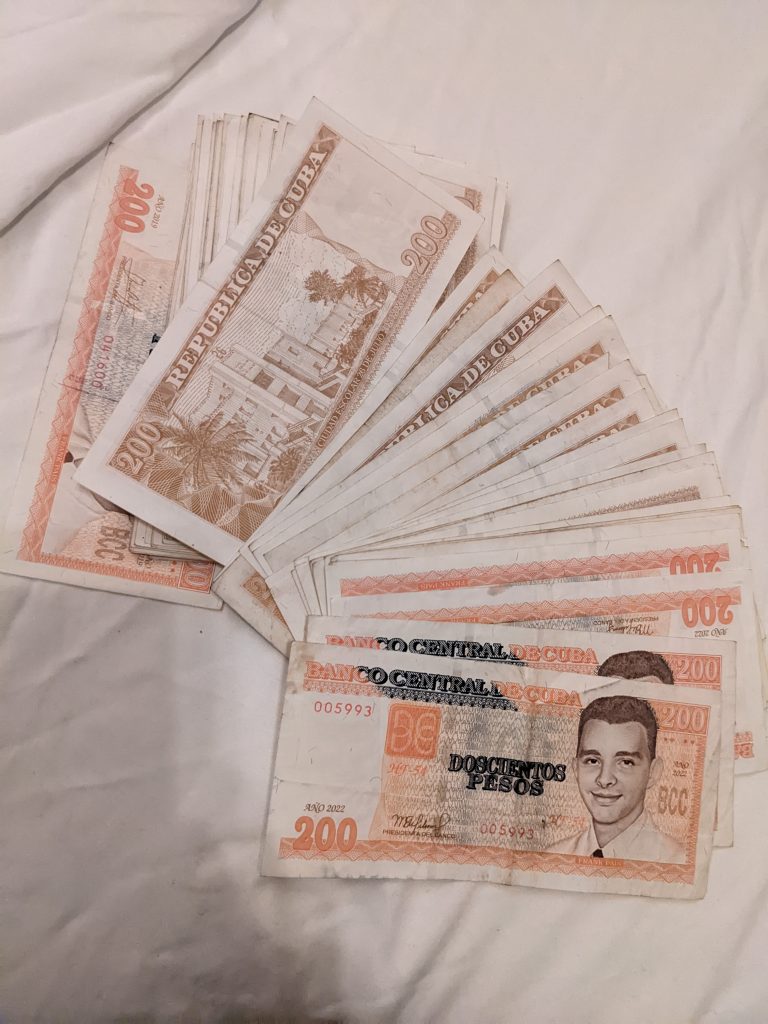
.
General accessibility of items in Cuba
The blockade shows itself every day in Cuban life. Internet didn’t arrive to Cuba until 2016. We encountered many bathrooms with no toilet paper or toilet seats. The typical Cuban diet is somewhat repetitive and simple: rice, beans, and plantains. A baseball cap can run as much as a doctor’s monthly salary. Cars nearly triple my age still drive on the roads.
Where most simple-living westerners do so by choice, Cubans do it by necessity. There are no dealerships flowing with cars nor groceries with aisles of different brands of toilet paper. Even a SIM card for Cuba’s one operator can prove impossible to find at a moment’s notice. All of these products utilize international trade at some level, and without that ability Cubans are left with little choice.
As a tourist with USD and EUR, I had access to many things normal Cubans did not. Since Cuba relies on tourism for foreign income, the Cuban government allocates supplies to make visiting as pleasant as possible. This definitely makes me feel some type of way. On the one hand, I obviously enjoy being comfortable, but on the other I want everyone to have access to basic comforts and necessities. For this reason I highly encourage tourists to bring supplies for the Cuban people, as Kiona also encouraged us to do.
.
Closing thoughts
There is a global market for Cubans, but the United States blocks the entryway. Foodstuffs and medications are meant to be exempt from the blockade, but previous American actions have made companies wary of doing any business. Different administrations arbitrarily enact different policies, and the hope from Obama’s loosening quickly dissipated under Trump.
Many Cubans seem to share my complex feelings and relationship with capitalism. Cubans have an immense amount of pride and what appears to be an excellent education system that teaches a diversity of views. The feeling of being simultaneously thankful and revolted by capitalism seemed much more acceptable there. If you think I’m wrong, then feel free to go to Cuba and prove it. They could use their dollars, and I’m always open to changing my mind with proof.
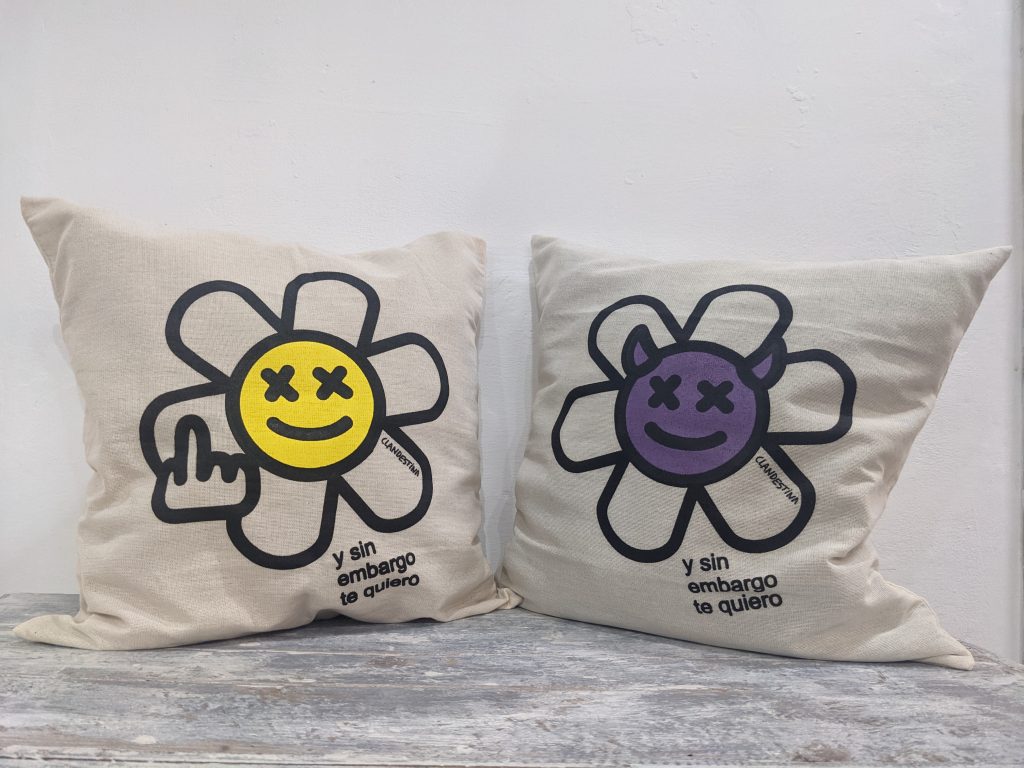
.

![Communism under capitalism [Cuba part 2]](https://selam.fyi/wp-content/uploads/sites/2/2022/12/PXL_20221118_194619925.MP_-scaled.jpg)

